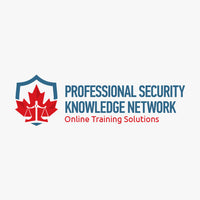3 reasons your organization should have a workplace cannabis policy
Cannabis legalization is a huge step in the right direction for consumers to enjoy products responsibly. In order to ensure that this freedom doesn’t meet criticism, it is important that everyone knows the facts and laws in order to make responsible choices.
Here are 3 reasons why employers should have a cannabis education plan and add a cannabis section to their workplace substance management policy.
1. Cannabis is now a legal substance
On October 17, 2018, recreational cannabis became a legal substance in Canada and in a few weeks, cannabis edibles will be legalized. Although many Canadians have experience smoking cannabis, not many have experience with edibles and are unaware of the appropriate dosages and how long the effects can last.
This will impact employers because according to the Q1 2019 National Cannabis Survey conducted by Stats Canada, 18% of Canadians use cannabis and 13% of Canadians consume cannabis before going to work or at work. In a legalized market, employers have a responsibility and a vested interest, to educate their employees on cannabis in the workplace.
2. Protect your employees in safety-sensitive positions
It is important for employees and employers to both understand that the legalization of recreational cannabis does not give employees the right to be impaired at work. Employers have a responsibility to provide a safe working environment and therefore have a right to develop workplace policies and expect them to be followed by their employees. These include policies on substance use or impairment during work hours. These policies would not be much different from alcohol for most employers, where employees can not use alcohol during their workday, or come to work impaired.
A workplace cannabis policy will set expectations and ensure that everyone is on the same page. Employers also need to ensure they review and update their accommodation policy to ensure cannabis is addressed and that they set expectations around an employee's duty to disclose, and an employer's duty to inquire and accommodate.
3. Set expectations across the organization
Employers need to be aware that drug testing may not be a feasible or appropriate solution for their operation. As per the Canadian Human Rights Commission, drug or alcohol testing of an employee who does not occupy a safety-sensitive position is not allowed. Drug testing is allowed for safety-sensitive jobs but in very narrow circumstances.
Employers should look to proactive education for employees and supervisors as an effective risk management tool. Employers should specifically be focused on educating their employees on how to spot impairment and what to do when they suspect an employee is impaired. Employers should also train their supervisors on how to manage impairment in the workplace and how and when to have a conversation with their employees.
Want to understand your organization's state of awareness in regards to cannabis? Learn about CannEd, a cannabis e-learning course built to empower employers and employees with the insight required to reduce risk and liability related to the use of cannabis at work.













Leave a comment